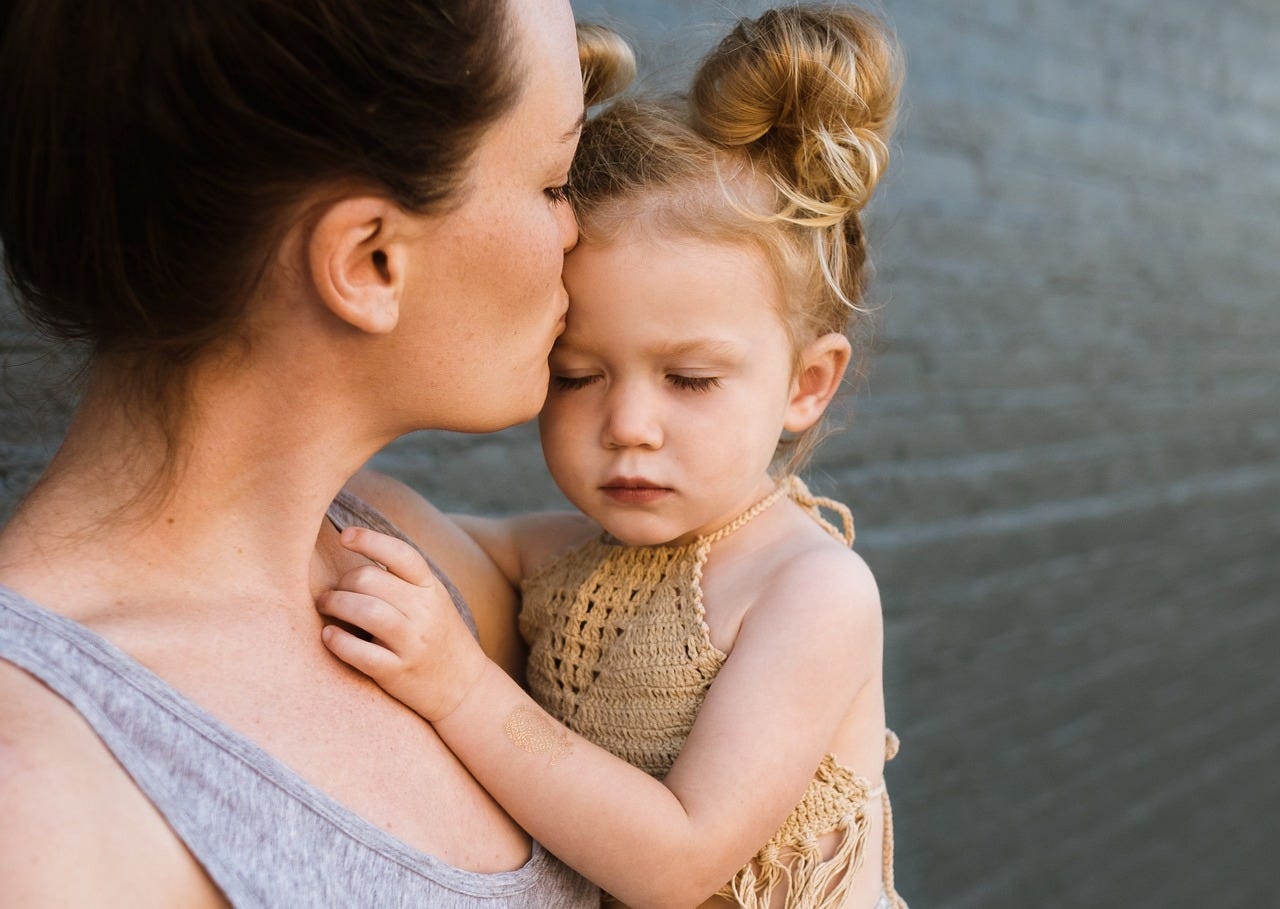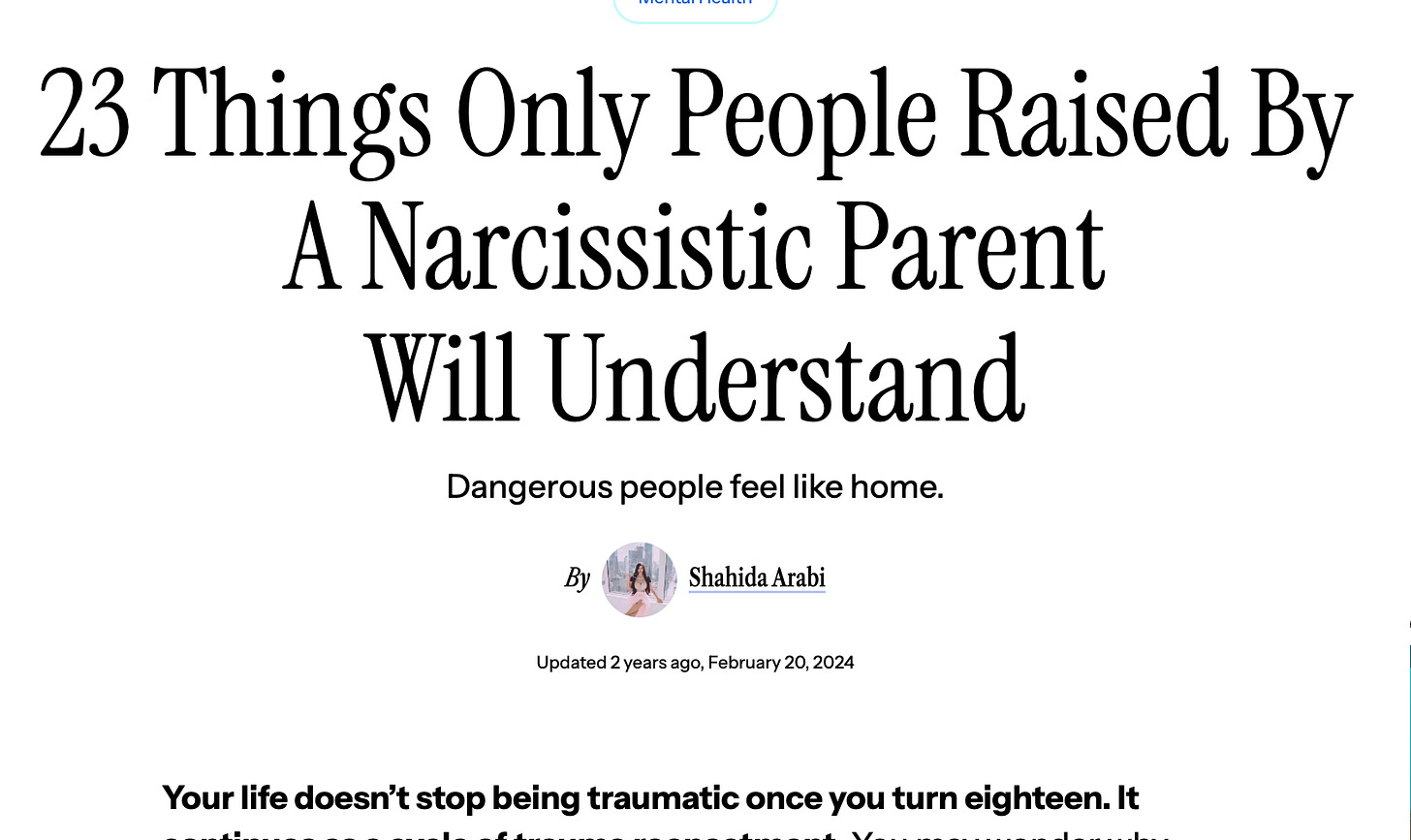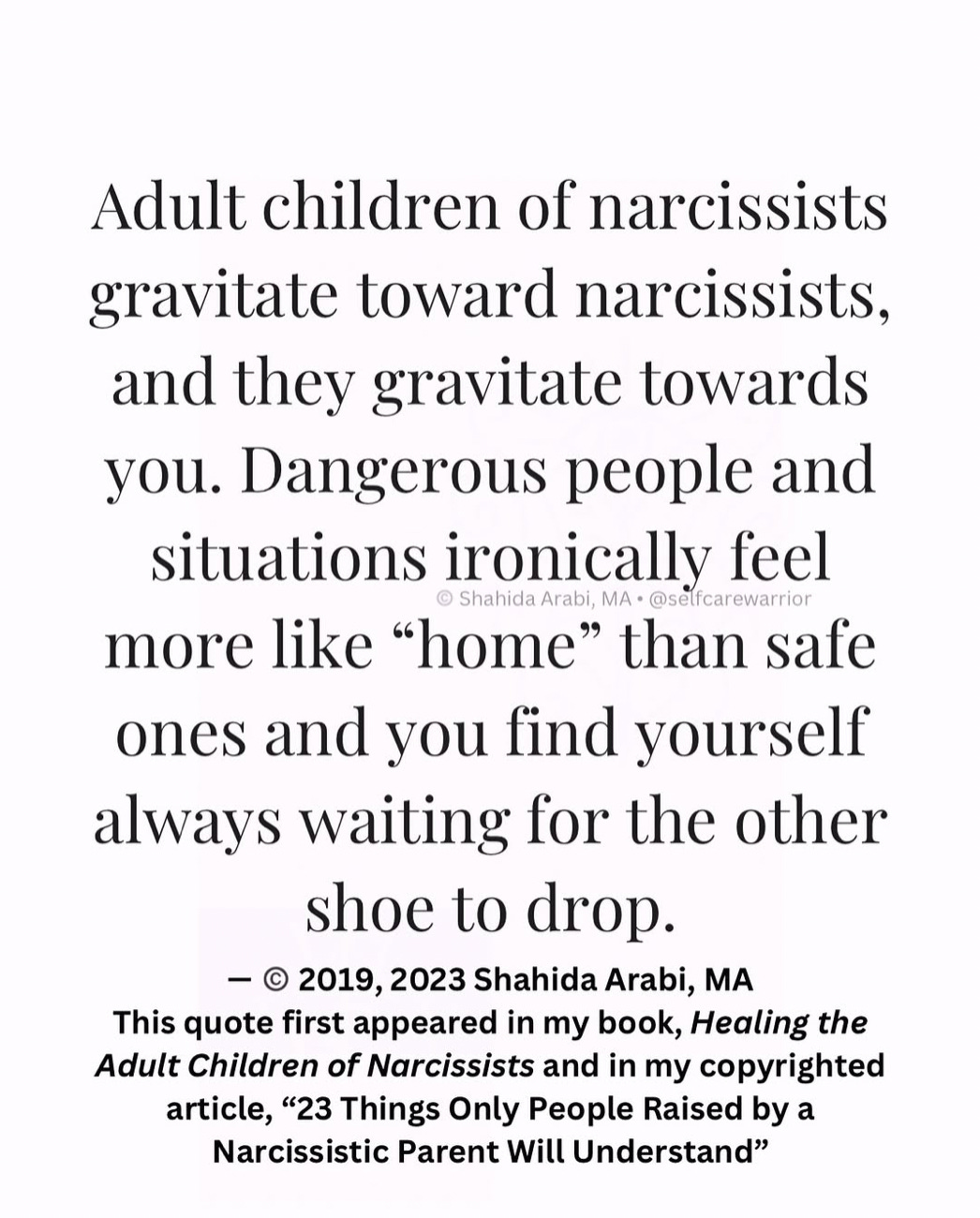Why Dangerous People Feel Like "Home" For Adult Children of Narcissists
My 2019 copyrighted quote
To adult children of narcissists, danger feels like home. Primed by chaos in childhood, they may engage in a trauma repetition cycle as adults. Here are 23 things only adult children of narcissists will understand.
Your life doesn’t stop being traumatic once you turn eighteen. It continues as a cycle of trauma reenactment. You may wonder why you become easily entrapped in toxic relationships with people who resemble your parents or exploitative friendships that seem to reenact your childhood adversity. This is because adult children of narcissists tend to become subconsciously drawn to dangerous people as a result of their upbringing. Their bodies and minds are accustomed to chaos and even biochemically “addicted” to it due to these early traumas. You are still working through ancient programming and beliefs.
You gravitate toward narcissists, and they gravitate towards you. Dangerous people and situations ironically feel more like “home” than safe ones and you find yourself always waiting for the other shoe to drop. You find yourself easily entangled in relationships or friendships with narcissists in adulthood – and paradoxically, this can initially feel “safer” than a healthy relationship which is not in line with your sense of “normal.” You don’t trust what seems “too good to be true” or what’s easily handed to you, because you had to work hard for everything you have now and even had to endure punishment or nitpicking when you achieved amazing things as a child. Instead, you find yourself waiting for the “catch” (even when there is none) when it comes to happy and safe relationships, accomplishments, or situations.
Your independence is vital for your own safety and well-being. So is your alone time. Being hyper-independent and alone most of the time may seem like a lonesome burden to people who weren’t raised by a toxic parent. But for you, it’s absolute bliss. Being alone means you finally get to choose who gets to be in your life and who has the ability to affect your emotions on a daily basis – a choice you never got to make as a child when you were constantly bombarded with the problems of the adults who were supposed to take care of you. As an adult, you find yourself savoring your alone time as you give your nervous system the time and space it always needed to heal.
You were an adult before you ever got to be a child – and now, you sometimes still feel like a child in an adult’s body. You may have grown up being told that you were very “mature” for your age. People often comment on how you seem to have wisdom beyond your years. Yet as an adult you find yourself still feeling like a child at times. That’s because as a kid, you were simultaneously infantilized and parentified. Narcissistic parents demean their children into feeling like they can’t venture out into the world on their own without their help to keep them dependent on them; on the other hand, they also shoulder their children with the burden of being parents to their parents.
This parentification trains young children to manage the emotions of their parents while also failing to meet their basic developmental needs. As an adult, you’re a natural caretaker. You “picked up” after the adults in your life, tending to their issues at a young age, ensuring they were taken care of. In adulthood, you may repeat this pattern and be prone to codependency in relationships, becoming overly empathic to toxic people who drain your energy. You grapple with the unmet needs of childhood as you learn to set healthier boundaries and reparent yourself.
You have a deep craving for connection – yet it scares the living daylights out of you. Narcissistic parents tend to become enmeshed with their children, treating them like objects and extensions of themselves. As an adult, becoming too “close” to someone frightens you because that means they have the power to harm you and take over your life. You tend to feel “suffocated” in relationships, even if you have a pattern of jumping from one relationship to another.
You’re afraid to shine so you dim your light to avoid “discovery.” Narcissistic parents train you to shrink with their hypercriticism. While most parents want their children to succeed and be happy, narcissistic parents tend to be pathologically envious and lash out at their children even when they’re doing well. As an adult, you fear retaliation for owning your strengths and gifts. You often shortchange yourself and believe you’re unworthy or undeserving even if you’re overqualified. Even when life is going extremely well, you hold a lingering fear of having “too much” success and happiness, having to constantly remind yourself that you are enough in order to battle your early conditioning. Giving yourself permission to enjoy yourself and the positive aspects of your life without developing a hyperfocus on even the most miniscule negative details can feel like a daunting task.
You live in a world of extremes when it comes to emotions. There’s very little grey area when an adult child of a narcissist starts their healing journey. They may be overwhelmed and terrified by their intense rage or sadness. As a child, you were usually punished for having emotions at all and emotionally invalidated. You could have a harder time validating and identifying your own emotions as an adult and may have learned to suppress these emotions to cope.
You “thrive” in fantasy relationships. For adult children of narcissists, the safest relationship is the one that doesn’t actually exist or ones with emotionally unavailable people. That’s because you do not fear getting hurt because you know the relationship can’t truly come into fruition. This can lead to you becoming easily infatuated or developing limerence toward people you know deep down can’t make you happy – but they certainly provide you with the hope of happiness, without all the fuss – at first. While these trysts may seem harmless at first, these relationships still end up harming you because you end up investing in a future with someone you know is ultimately not compatible with you.



